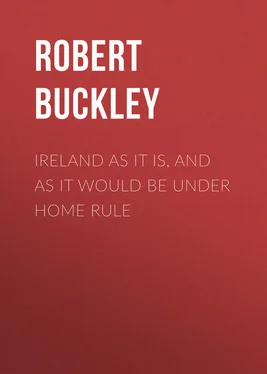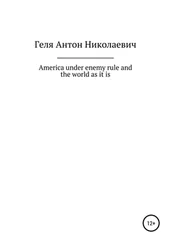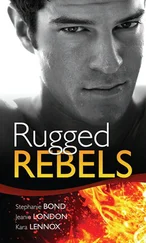Robert Buckley - Ireland as It Is, and as It Would Be Under Home Rule
Здесь есть возможность читать онлайн «Robert Buckley - Ireland as It Is, and as It Would Be Under Home Rule» — ознакомительный отрывок электронной книги совершенно бесплатно, а после прочтения отрывка купить полную версию. В некоторых случаях можно слушать аудио, скачать через торрент в формате fb2 и присутствует краткое содержание. ISBN: , Жанр: foreign_antique, foreign_prose, на английском языке. Описание произведения, (предисловие) а так же отзывы посетителей доступны на портале библиотеки ЛибКат.
- Название:Ireland as It Is, and as It Would Be Under Home Rule
- Автор:
- Жанр:
- Год:неизвестен
- ISBN:http://www.gutenberg.org/ebooks/29710
- Рейтинг книги:5 / 5. Голосов: 1
-
Избранное:Добавить в избранное
- Отзывы:
-
Ваша оценка:
- 100
- 1
- 2
- 3
- 4
- 5
Ireland as It Is, and as It Would Be Under Home Rule: краткое содержание, описание и аннотация
Предлагаем к чтению аннотацию, описание, краткое содержание или предисловие (зависит от того, что написал сам автор книги «Ireland as It Is, and as It Would Be Under Home Rule»). Если вы не нашли необходимую информацию о книге — напишите в комментариях, мы постараемся отыскать её.
Ireland as It Is, and as It Would Be Under Home Rule — читать онлайн ознакомительный отрывок
Ниже представлен текст книги, разбитый по страницам. Система сохранения места последней прочитанной страницы, позволяет с удобством читать онлайн бесплатно книгу «Ireland as It Is, and as It Would Be Under Home Rule», без необходимости каждый раз заново искать на чём Вы остановились. Поставьте закладку, и сможете в любой момент перейти на страницу, на которой закончили чтение.
Интервал:
Закладка:
Belfast, April 4th.
No. 5. – HAS Mr. MORLEY LIED?
Before leaving Belfast I obtained incontrovertible evidence anent the growing fears of Mr. Gladstone's Government. Mr. Morley has denied the existence of any such nervousness, and has repudiated the assertion that precautions have been taken. But what is the truth of the matter? Let us see whether his statement is borne out by facts.
In February certain military officers received a confidential communication having reference to the defence of the Belfast barracks. They were requested to examine and report upon the possibility of these buildings being tenable against a coup de main , were ordered to examine the loop-holes for musketry, to prepare plans of the same, and to duly submit them to the proper authorities, giving their opinion as to the practicability and sufficiency of existing arrangements in the event of the buildings being assaulted by organised bodies of armed civilians, during the absence of soldiers who might be about the city, taking their walks abroad, after the regulation manner permitted to Mr. Thomas Atkins under ordinary circumstances. The order was executed, the plans were duly furnished, and if Mr. Morley is still unaware of the fact, I have much pleasure in imparting the information which I have on the best authority attainable in an imperfect world. He may rely on this statement as being absolutely undeniable, and to descend to particulars, I will add that plans were made of the Tram Stables Barracks, the Willow Bank Barracks, and the Victoria Barracks. As I have said, the instructions were marked Confidential, and the Irish Secretary may have relied on this magic word in formulating his denials. The alternative hypothesis is, of course, obvious enough. The work may have been ordered and executed without Mr. Morley's knowledge, but it has been done, and, after proper inquiry, he will not venture to deny it. The circumstance is a curious commentary on the Gladstonian affectation of perfect security, and the scornful references of Home Rulers to the alleged determination of Ulstermen, in the last resource, to push matters to extremity. I could tell him more than this. It would be easy to adduce other instances of Governmental nervousness, but prudential and confidential considerations intervene.
However, while in the vein, let me submit for serious contemplation the fact that up to the morning postal delivery of Wednesday, April 5, 1893, written offers of personal assistance in the matter of armed resistance to the exact number of ten thousand and five have reached a certain Ulster organisation from England and Scotland, the roll including five generals, with a percentage of Victoria Cross men. This statement is made on the authority of the Earl of Ranfurly, who told me that the matter was within his personal knowledge, and that the whole of these communications were entirely spontaneous and altogether unsolicited, and that nobody in Ireland was in any way responsible for their existence. Lord Ranfurly also said that while the hearty friendship and co-operation of these gentlemen were warmly appreciated by Irish Loyalists, he was quite certain that their generous aid would never be required, for that Home Rule was now defunct, dead, and buried, and beyond the possibility of resurrection. It may be remarked, in passing, that this is the feeling of the best-informed Irish Home Rulers, and that many in my hearing have offered to back their opinion by laying odds. The rejection of the Bill so far from exasperating the Nationalist party, would positively come as a relief. To say that they are lukewarm is only to fairly indicate a state of feeling which is rapidly degenerating into frigidity. They declare that the Bill is unworkable, and while maintaining their abstract right to demand whatever they choose, believe that, taking one consideration with another, the lot of autonomic Ireland would not be a happy one.
Mr. Richard Patterson, J.P., the great ironmonger of Belfast, observes that "according to Mr. Gladstone the only people who really understand Ulster are those who have never been in it." My interview with him was both instructive and interesting. He is one of the Harbour Commissioners, and a gentleman of considerable scientific attainments, as well as a great public and commercial man. He belongs to the Reform Club and, with his fellow-members, was up to 1886 a devoted follower of Mr. Gladstone. The name of his firm, established in 1786 on the very ground it now occupies, is a household word in Ireland, and Mr. Patterson himself has the respect and esteem of his bitterest political opponents. He pointed out the unfairness and injustice of Mr. Gladstone's reference to religion, when turning a deaf ear to the Belfast deputation. "The report of the Chamber of Commerce," he said, "was a purely business statement, and had no element of party feeling. The fact that the Protestant members of the Chamber outnumber the Catholics is in no respect due to religious intolerance, which in this body is totally unknown. Anybody who pays a guinea a year may be elected a member, whatever his religion, whatever his circumstances, providing he is a decent member of society, which is the only qualification required. Members are certainly elected by ballot, but during the many years I have belonged to the Chamber not a single person has been black-balled. If the Protestants are more numerous, the fact simply demonstrates their superior prosperity, arising only from their more steady application to hard work. We live on terms of perfect friendship with our Catholic countrymen, and we assiduously cultivate the sentiment. It is only when a weak and ignorant pandering to disloyalty excites opposition that enmity begins. Only let us alone, that is all we ask. We were going on beautifully until Mr. Gladstone and his accomplices upset everything." Speaking of the difference between the Ulster men and the Irish Kelts, Mr. Patterson said, "Prosperity or the reverse is indicative of the breed. The Southern Irish had more advantages than the Ulstermen. They had better land, better harbours, a far more productive country, and yet they always seethe in discontent. Put 20,000 Northerners in Cork, and in twenty years the Southern port could knock Liverpool out of time." Addressing himself to the Home Rule Bill, he declared that the practical, keen-witted merchants of Belfast dismissed the whole concoction as unworthy of sober consideration, and declared that an awful responsibility rested on Mr. Gladstone. Said this experienced J.P.:
"The Belfast riots of 1886 were terrible. Forty people were killed in the streets, and what I saw in my capacity of magistrate was dreadful in the extreme. The injuries from gun-shot wounds were almost innumerable, and many a local doctor gained experience in this line which is unknown to many an army surgeon. The riots began with the ruffian class, from which this great city is not entirely free, and gradually rose upwards to the shipbuilding yards. All this disturbance and awful loss of life were entirely due to the production of Mr. Gladstone's first bill. And now they tell us that a worse bill – for it is a worse bill – might become law without any inconvenience. I submit to any reasonable man that if the mere menace of a bill cost forty lives in Belfast alone, the loss of life all over Ireland, once the bill were passed, would be enormous. And all this will be attributable to the action of Mr. Gladstone, who has never been in Ulster."
Walking down Royal Avenue I met Colonel Saunderson, radiant after the great demonstration of two days ago, wearing a big bunch of violets in place of Tuesday's bouquet of primroses. He stopped to express good wishes to the Gazette , and said that the Belfasters were proud of Birmingham, which city he regarded as being the most advanced and enlightened in the world. While he so spake, up came the mighty Dr. Kane, idol of the Ulsterites, towering over the gallant Colonel's paltry six feet one, and looking down smilingly from his altitude in infinite space on my own discreditable five feet ten. He agreed with the Colonel as to the merits of Birmingham, and added that every Unionist in Belfast cherished a deep sentiment of gratitude to the hardware city, requesting me to explode the misleading statements of the Separatist press, which asserts that Tuesday's procession consisted of Orangemen. "The first two hours," said the Reverend Doctor, "consisted of bodies who do not processionise, and who never perform in public, in or out of Belfast, Methodists, Presbyterians, and the like, while the 25,000 or 30,000 Orangemen who came in at the tail of the show were a mere fraction of the whole. Colonel Saunderson, the Earl of Erne, and myself stood up in our carriage and cheered the Radical Reform Club, a thing we certainly have never done before." Here the Colonel laughed, and said —
Читать дальшеИнтервал:
Закладка:
Похожие книги на «Ireland as It Is, and as It Would Be Under Home Rule»
Представляем Вашему вниманию похожие книги на «Ireland as It Is, and as It Would Be Under Home Rule» списком для выбора. Мы отобрали схожую по названию и смыслу литературу в надежде предоставить читателям больше вариантов отыскать новые, интересные, ещё непрочитанные произведения.
Обсуждение, отзывы о книге «Ireland as It Is, and as It Would Be Under Home Rule» и просто собственные мнения читателей. Оставьте ваши комментарии, напишите, что Вы думаете о произведении, его смысле или главных героях. Укажите что конкретно понравилось, а что нет, и почему Вы так считаете.












